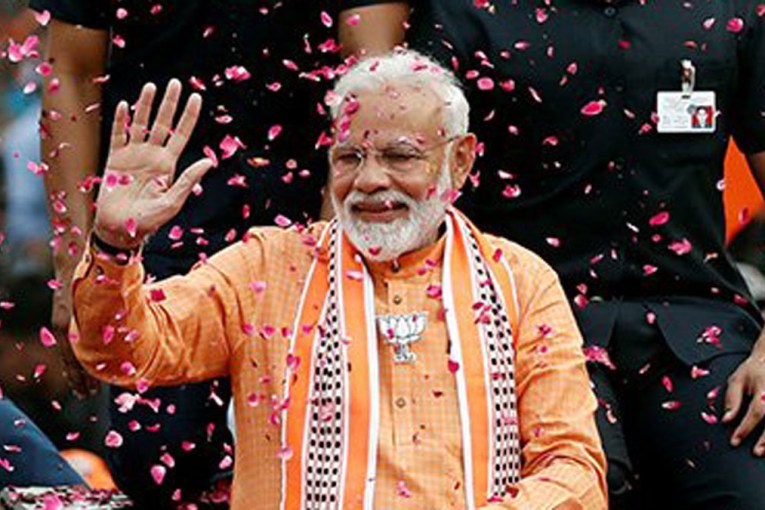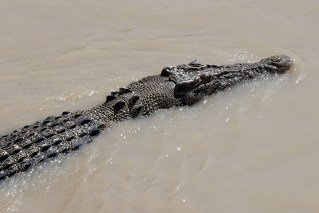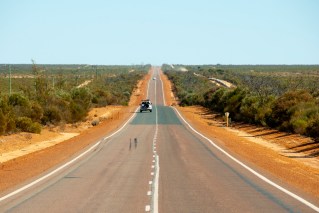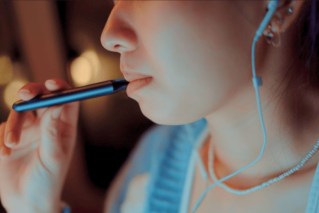Australians intending to get vaccinated soars to almost 80 per cent in latest outbreak

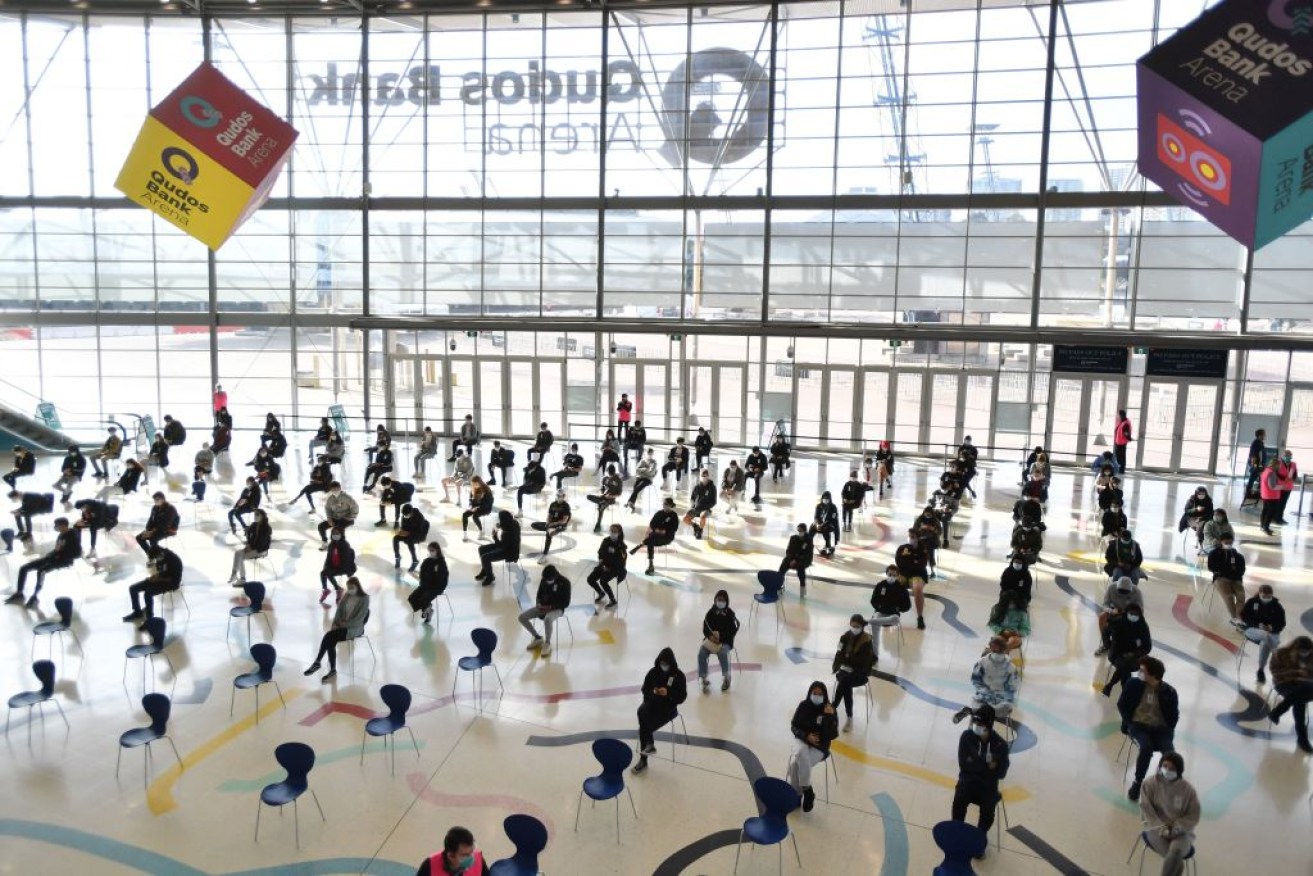
Most Australians are planning to get vaccinated which could help the nation achieve its targets. Photo: Getty
Bosses may have the power to mandate staff vaccinations in “reasonable” circumstances after the Workplace Ombudsman updated its guidance amid a push from businesses for legal certainty.
The advice released on Thursday night stated that directing employees to get jabbed could depend on the type of work (whether they had direct contact with others) and severity of transmission in the community.
“Employers can direct their employees to be vaccinated if the direction is lawful and reasonable,” stated the material COVID-19 vaccinations: workplace rights and obligations.
“Whether a direction is lawful and reasonable will be fact dependent and needs to be assessed on a case-by-case basis.”
“Reasonable” factors included whether the job was an essential service with direct public contact and if social distancing at work was not possible.
Another reason could be the level of virus transmission in the community such as an outbreak.
Only two Australian companies – regional air carrier Alliance Airlines and canning company SPC – have declared they will make a COVID-19 vaccination mandatory for their workers.
Until now the Ombudsman had stated “the overwhelming majority of employers should assume that they can’t require their employees to be vaccinated against coronavirus”.

Employers have more room to move with the latest advice on mandatory vaccines. Photo: Getty
The updated advice to employers comes as the proportion of Australians intending to get vaccinated for COVID-19 has soared over the past month as NSW struggles to contain its outbreak.
An updated Commonwealth survey showed 79 per cent of Australians were likely to get, or already were, vaccinated, which is up nine points on the survey result in July.
Currently almost 20 per cent of Australians are fully vaccinated, with nearly 14.5 million doses administered.
The federal health department data also showed concern about the general COVID-19 situation had risen to its highest level (45 per cent) since September last year when it was at 47 per cent.
Concern over the pandemic had dipped as low as 28 per cent in March.
Federal vaccine co-ordinator Lieutenant-General John Frewen said the desire for vaccinations was at its highest of the pandemic and at these numbers Australia could achieve its targets.
He told ABC’s 7.30 program only 7 per cent were not planning to get vaccinated.
The national cabinet has set a goal of 70 per cent vaccination before some restrictions can start to be eased and 80 per cent for a major step forward in reopening.
The prime minister and state and territory leaders are on Friday expected to receive a detailed update on the vaccine rollout, as coronavirus continues to seep out of Sydney’s outbreak epicentre.

Gladys Berejiklian won’t call a statewide NSW lockdown. Photo: AAP
Meanwhile the NSW government is resisting calls for a statewide lockdown but has extended restrictions in the Hunter and New England regions.
Surging case numbers in NSW remain stubbornly high with 345 new local infections and two deaths reported in the past 24 hours.
The ACT on Thursday entered a seven-day lockdown after Canberra recorded four local cases, the first in more than a year.
ACT health authorities haven’t established where the virus has come from but expect genomic sequencing to be completed on Friday.
Federal parliament adjourned on Thursday and is scheduled to return on August 23, with many MPs and senators opting to stay in locked-down Canberra for the non-sitting week.
Victorian health authorities are concerned after mystery coronavirus cases emerged among two unconnected families in Melbourne’s north.
Of the four unlinked cases reported on Thursday, three were across two separate households in Glenroy, including a child who attends Glenroy West Primary School.
Victoria’s COVID-19 Commander Jeroen Weimar said the families don’t know each other and their children do not attend the same school or sports club.
“Seeing something pop up that’s not on the radar yet is a little bit disturbing,” he told reporters.
“All the other pieces, we can see how they fit in. These two don’t yet fit in.”

Lining up for testing in Melton, Melbourne. Photo: Getty
Victoria reported 21 new local cases on Thursday and two from interstate travellers who flew from Sydney to Melbourne while infected with COVID-19.
The women boarded Qantas flight QF471 on Monday afternoon without valid permits and were taken to hotel quarantine, where they tested positive.
Both have been fined $5452 and Mr Weimar said the incident proved the need for Victoria’s strict border restrictions.
All 46 people on the flight, which has been listed as a tier-one exposure site, have been contacted and told to quarantine for 14 days.
Fears as Indigenous infections rise
Thousands of Pfizer vaccine doses are being sent to regional NSW areas where Aboriginal people including children make up the majority of COVID-19 cases.
Five cases have been recorded in Dubbo in the past three days, along with another case in western NSW. They include an Aboriginal man from Walgett.
The cases led the state government to call a one-week snap lockdown for the Walgett, Dubbo, Bogan, Bourke, Brewarrina, Coonamble, Gilgandra, Narromine and Warren areas on Wednesday.
Federal Health Minister Greg Hunt confirmed an additional 7680 Pfizer vaccine doses will be provided for the affected areas, including Walgett.
The shots are expected to arrive on Thursday, with 4800 for use by GPs and commonwealth vaccination clinics, and 2880 for Aboriginal community-controlled health services.
Mr Hunt said extra AstraZeneca vaccines would also be made available in what is a “whole-of government” effort to support and protect those communities.
Western Local Health District Chief Executive Scott McLachlan confirmed that the “vast majority” of those cases were in Aboriginal people, including children.
“We’re very concerned about the Aboriginal population in the region,” he told ABC Radio National.
“The last thing we want to see is this Delta strain spreading across the Aboriginal community, so we’ll do everything possible to make sure we keep people safe.”
The number of cases in the region is expected to grow significantly in the coming days, Mr McLachlan said.
Fuelling concern is a combination of significant Indigenous populations, low vaccination rates and relatively poor health services.
Nearly 30 per cent of people in the Walgett LGA are Aboriginal or Torres Strait Islander, and Dubbo also has a significant Aboriginal population.
The Dharriwaa Elders Group at Walgett issued an urgent request on Thursday evening for more trained nurses to support Aboriginal Medical Services.
The group also requested motel rooms be made available for people who are homeless, accommodation and support for people leaving prison, and mobile testing and vaccination.
-with AAP

